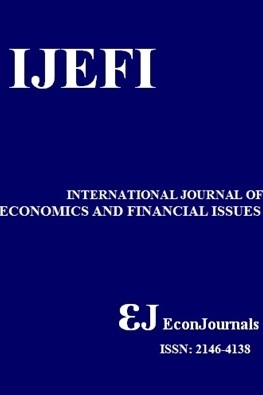Coercive or Supportive: An Assessment of Non-governmental Organizations Role in Sustainable Supply Chains Adoption
Coercive or Supportive: An Assessment of Non-governmental Organizations Role in Sustainable Supply Chains Adoption
- Başlangıç: 2011
- Yayıncı: İlhan ÖZTÜRK
Retailer Value-at-Risk in Interconnected Power Markets: An Australian Empirical Analysis
Rangga HANDİKA, Sigit TRİANDARU
Work-life Balance: The effect on Absenteeism among Employees in a Malaysian Utility Company
Idaya Husna Mohd, Maimunah Mohd Shah, Nur Aizureen Anwar, Nadia Mahzumi
E-Commerce Strategic Business Environment Analysis in Indonesia
Core Competence on Real Estate Industry in Globalization Phenomenon: A Contemporary Approach
Kelik HASTJARJO, Dwi Kartini YAHYA, Faisal AFİFF, Popy RUFAİDAH
Haider Mahmood, Tarek Tawfik Yousef Alkhateeb, Nabil Maalel
Siti Fardaniah Abdul Aziz, Abu Daud Silong, Kamsuriah Ahmad, Mohd. Nasir Selamat, Mohd Reffi Hidayat Roslan, Mohd Ridhwan Abd Manan
Identification Research of the Concept of Entrepreneurship: The Theoretical Aspect
Gintare Giriuniene, Lukas Giriunas, Gintaras Cernius
